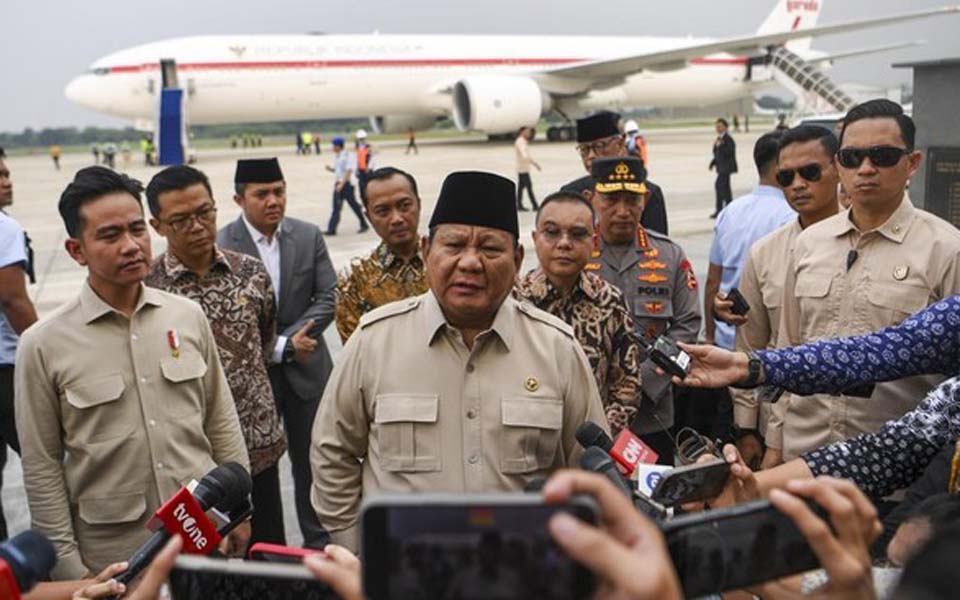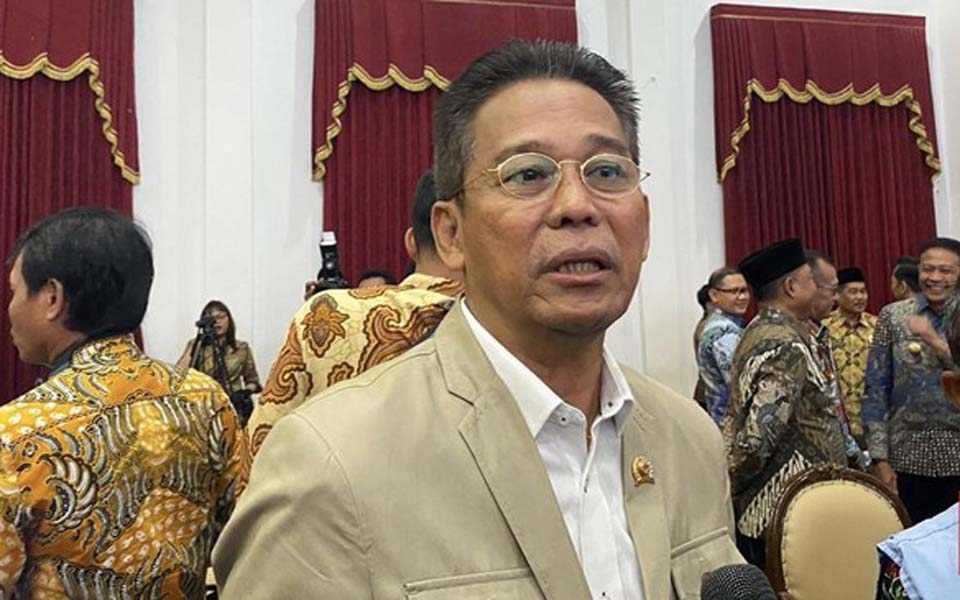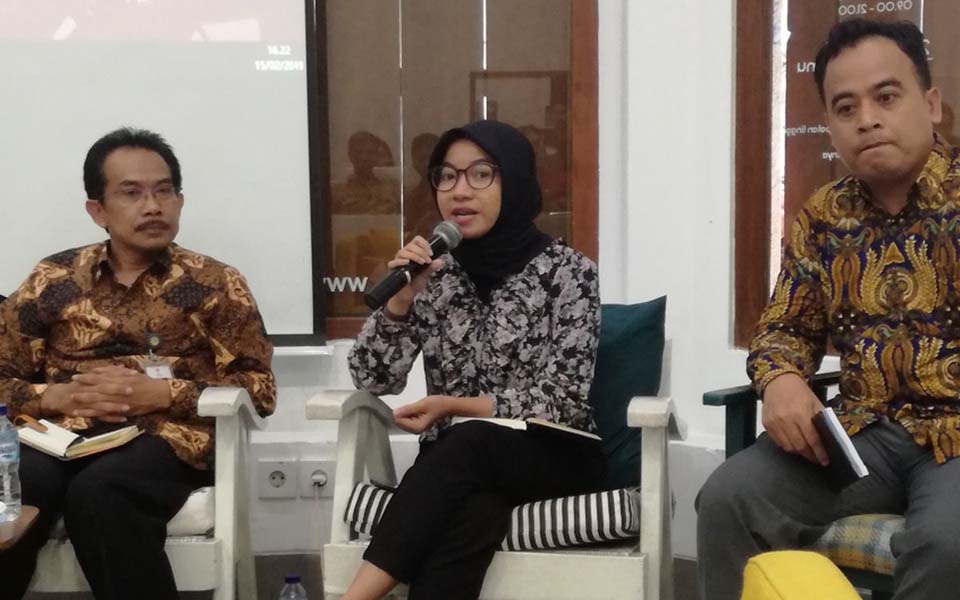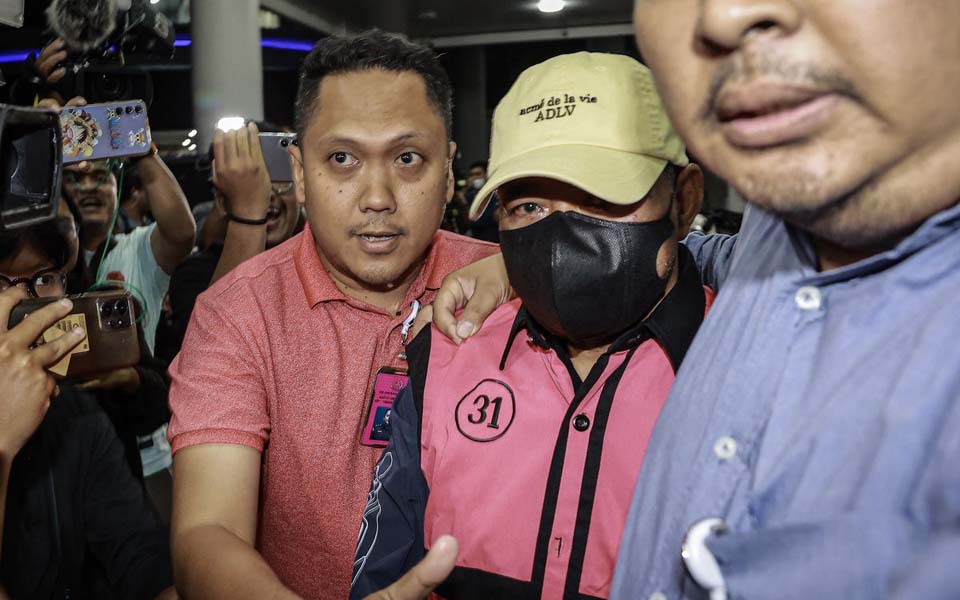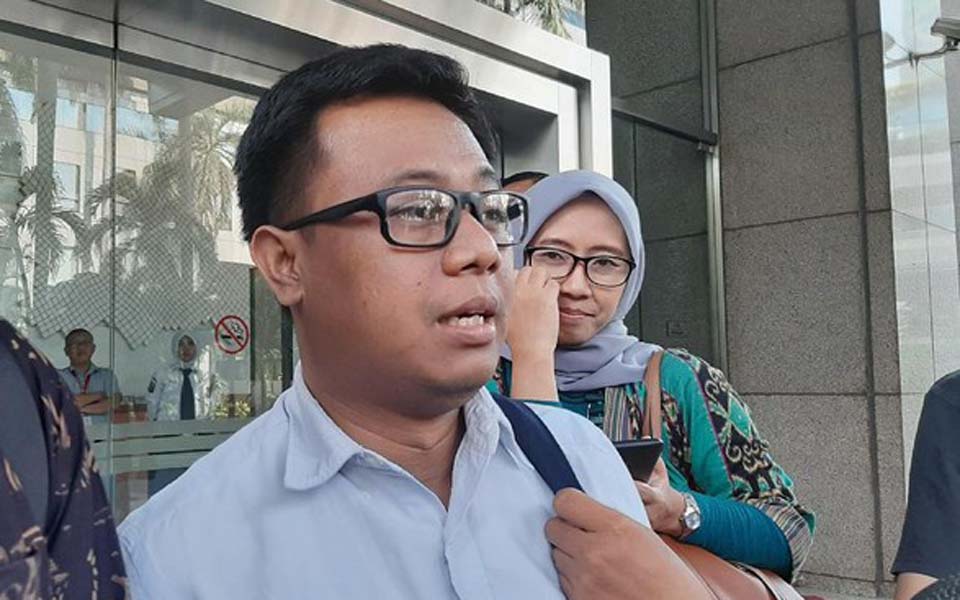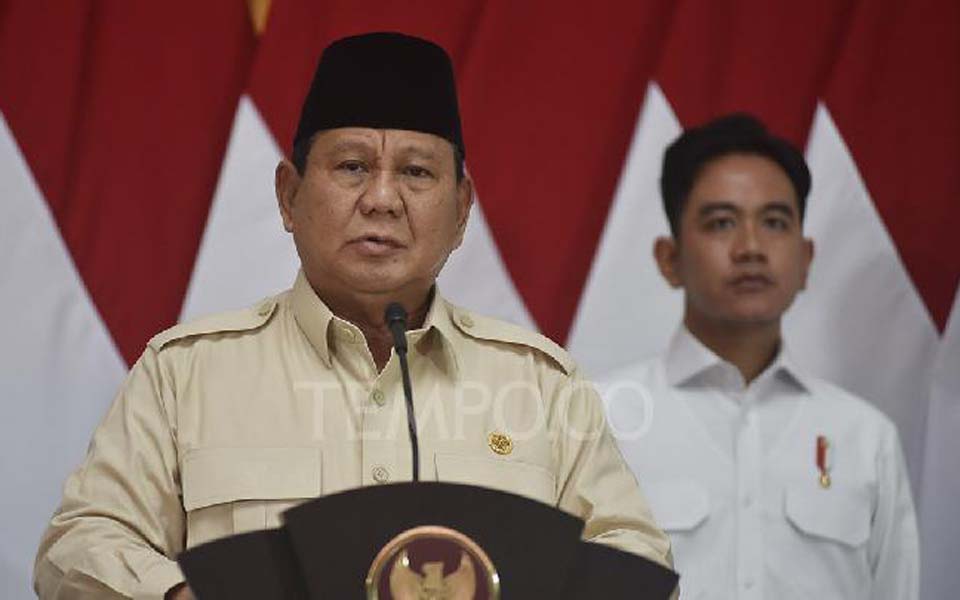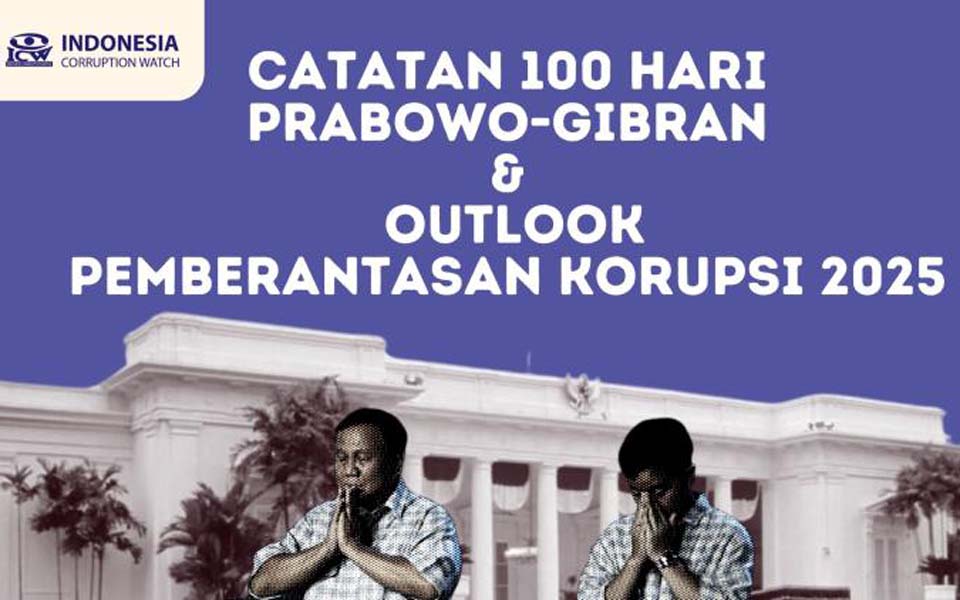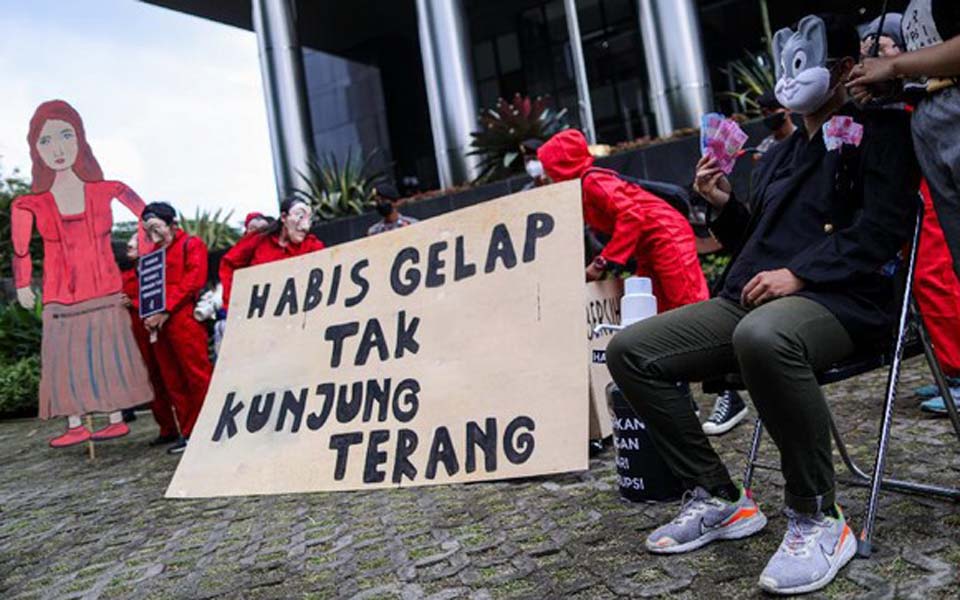Jakarta – Indonesia Corruption Watch (ICW) researcher Kurnia Ramadhana believes that 2019 was the year in which the Corruption Eradication Commission (KPK) was destroyed. Ramadhana even said that President Joko “Jokowi” Widodo and the House of Representatives (DPR) were the masterminds behind its destruction.
“This was the year of the KPK’s destruction, which was truly sponsored directly by the Palace or President Joko Widodo and also DPR members for the period 2014-2019 and 2019-2024”, said Ramadhana at the ICW’s offices in Jakarta on Sunday December 29.
Ramadhana was speaking in reference to ICW’s end of year report titled “Corruption Eradication Commission Paralyzed at the Hands of a ‘Good’ Person”. ICW outlined a number of points in the report.
ICW believes that Widodo broke his pledge to strengthen the KPK as can be seen from the new KPK leadership for 2019-2023 which was recently inaugurated by Widodo.
According to ICW, the new KPK leadership are people lacking integrity and who have problematic track records. ICW did not want police Inspector General Firli Bahuri to become the KPK chairperson because he once violate the code of ethics when he formally held the position of KPK deputy for prosecutions.
ICW noted that Widodo along with the DPR also succeeded in destroying the KPK by revising the KPK Law (UU KPK). This was despite the wave of protests by students and social groups around the country rejecting the revisions to the KPK Law.
“Almost all of the KPK’s authority has been high jacked through this law”, said Ramadhana.
Furthermore, the draft presidential regulation on the organisational structure and management of the KPK further adds to the risk of eliminating the independence of the anti-graft institution.
“This draft makes it even clearer that the KPK is now part of the executive branch. This was indeed already regulated in the UU KPK revision, but we consider that policies such as this conflict with the United Nations Convention Against Corruption”, he said.
ICW believes that Widodo is siding with the political cartels. The example of this being appointing figures affiliated with the political parties in legal institutions such as giving ST Burhanuddin the Attorney General’s post.
This is despite the fact that he is the younger brother of TB Hasanuddin, a politician from Widodo’s ruling Indonesian Democratic Party of Struggle (PDI-P).
The cabinet formed by Widodo also includes prominent businesspeople. ICW cited Luhut Binsar Panjaitan, Erick Thohir, Airlangga Hartarto and Prabowo Subianto. ICW is worried that Widodo is being held hostage by business interests in running the government.
ICW also regrets that Widodo did not involve the KPK and the Financial Transactions Reporting and Analysis Center (PPATK, the anti-money laundering agency) in the selection of cabinet ministers as he did when he was first elected in 2014.
ICW went on to highlight the large number of light sentences handed down by judges in criminal corruption cases saying that the Supreme Court has lost its teeth.
ICW highlighted two recent court verdicts, namely the decision to release a defendant in the Bank Indonesia Liquidity Support Scheme (BLBI) corruption scandal, Syafruddin Arsyad Tumenggung, when he appealed his sentence at the Supreme Court, and the release of former State Electricity Company (PLN) Director Sofyan Basir at the district court level.
ICW also regretted the move by the Supreme Court to reduce the jail sentence against Idrus Marham from five years to three years.
“Throughout 2019, ICW recorded at least six verdicts which benefited corruption convicts, from Irman Gusman, Choel Mallarangeng, Suroso, Tarmizi, Patrialis Akbar thorough to M. Sanusi”, said Ramadhana. (mjo/bmw)
[Translated by James Balowski. The original title of the article was “Refleksi ICW 2019: Jokowi-DPR Sponsor Utama Kehancuran KPK”.]








